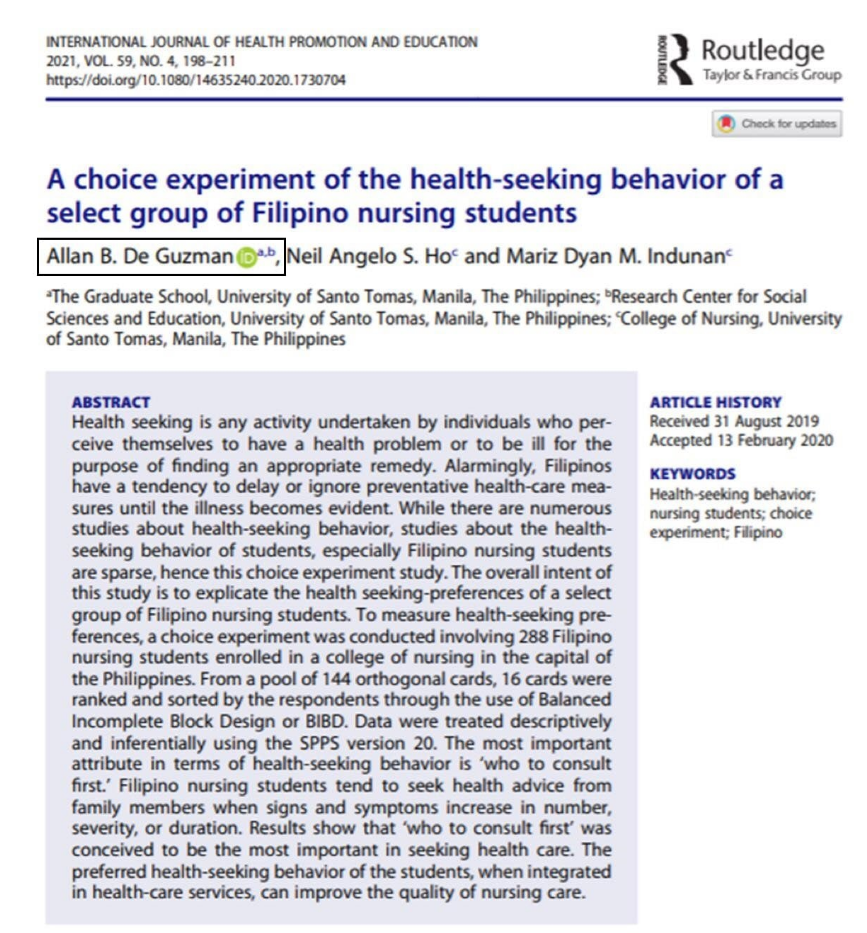Health seeking is any activity undertaken by individuals who perceive themselves to have a health problem or to be ill for the purpose of finding an appropriate remedy. Alarmingly, Filipinos have a tendency to delay or ignore preventative health-care measures until the illness becomes evident. The overall intent of this study is to explicate the health seeking-preferences of a select group of Filipino nursing students. To measure health-seeking preferences, a choice experiment was conducted involving 288 Filipino nursing students enrolled in a college of nursing in the capital of the Philippines. From a pool of 144 orthogonal cards, 16 cards were ranked and sorted by the respondents through the use of Balanced Incomplete Block Design or BIBD. Data were treated descriptively and inferentially using the SPPS version 20. The most important attribute in terms of health-seeking behavior is ‘who to consult first.’ Filipino nursing students tend to seek health advice from family members when signs and symptoms increase in number, severity, or duration. Results show that ‘who to consult first’ was conceived to be the most important in seeking health care. The preferred health-seeking behavior of the students, when integrated in health-care services, can improve the quality of nursing care. [Indexed in Scopus Q3] – https://www.tandfonline.com/…/14635240.2020.1730704…
